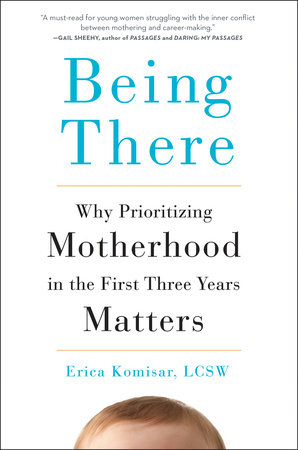How Reading to Your Children Helps You to Be a Present Parent
by Erica Komisar, LCSW
Sitting and reading a book with your child can be a very intimate and emotionally bonding experience. It is not just the act of reading that is important. It is the emotional and physical interaction with your child that takes place while you read together that promotes closeness and helps to develop their social-emotional right brain.
When a parent reads with their child they are in the moment, providing their child with their full attention, and showing interest not only in the activity of reading, but in the child himself. There is no better method of bonding than cuddling with your arms wrapped around your child, sharing stories and pictures, thoughts and feelings, while turning the pages of a book. The cuddling, physical affection, and eye contact that happen as you read the words are as important, if not more important, than the words themselves.
I remember reading Curious George Goes to the Hospital to my son when he was a young child. After a while, he began to recite every word of the book. When noticing this behavior, my husband and I first thought, “Is he a genius?” Soon after, we realized he had memorized the book so that he could participate and share the experience with me. I would read a few words and he would finish my sentences and on and on we went until the end of the book, each and every night. The repetition of reading this book together became a special experience for the two of us. We shared all of George’s emotions as he discovered he would have to get the puzzle piece he had swallowed removed by a doctor, his fear upon entering the hospital, and his relief once the operation was over and he could go home.
My son, who would later have surgery to remove his adenoids, remembered how brave George had been and how kind the nurses were to him in the hospital. But, for his surgical experience, the most important lesson from the book was how George had successfully made it through this difficult situation. The experience of reading together each and every night had created an atmosphere of bonding, love, emotional development and awareness for both of us.
Presence means reflecting your child’s emotions as they are reading — the characters’ excitement, the sadness they feel, as well as sensations of loss and fear. By sharing these feelings with your child and discussing how the characters are dealing with their emotions, you are not only feeling empathy toward your child, but also helping your child to learn to feel empathy toward others. You are stimulating the right side of their brain by exploring the feelings of the characters and your child’s own feelings about the events in the books.
Some great moments to read a book with your child are at transitional times of the day such as waking up or going to sleep, coming home from school or transitioning to quiet time. These are the most vulnerable and important times of the day to connect with your child. Even though it is important to be as present as much as possible throughout the day, the end of the day is when most parents read to their child and it is a critical time to connect. Think of mooring a boat to a dock securely for the night, which is what cuddling and reading a book before bed means to a child who is about to separate for the night. The end of the day is when a child is separating from the parent and from reality to go to sleep, and a parents’ presence at this time reassures a child of their attachment to and emotional security they feel in their relationship with the parent.
Reading to your very young child is a nurturing experience, and later, when they read to you, it is a gratifying and self-esteem building experience for them. Sharing books has always been and will always be a wonderful way to be present with your children, promoting not only closeness, but also providing them with the emotional security for life.
-
By the Author:
Being There: Why Prioritizing Motherhood in the First Three Years MattersAvailable from:Also available from:

